5 TIPS FOR DRUMLINE AUDITIONS
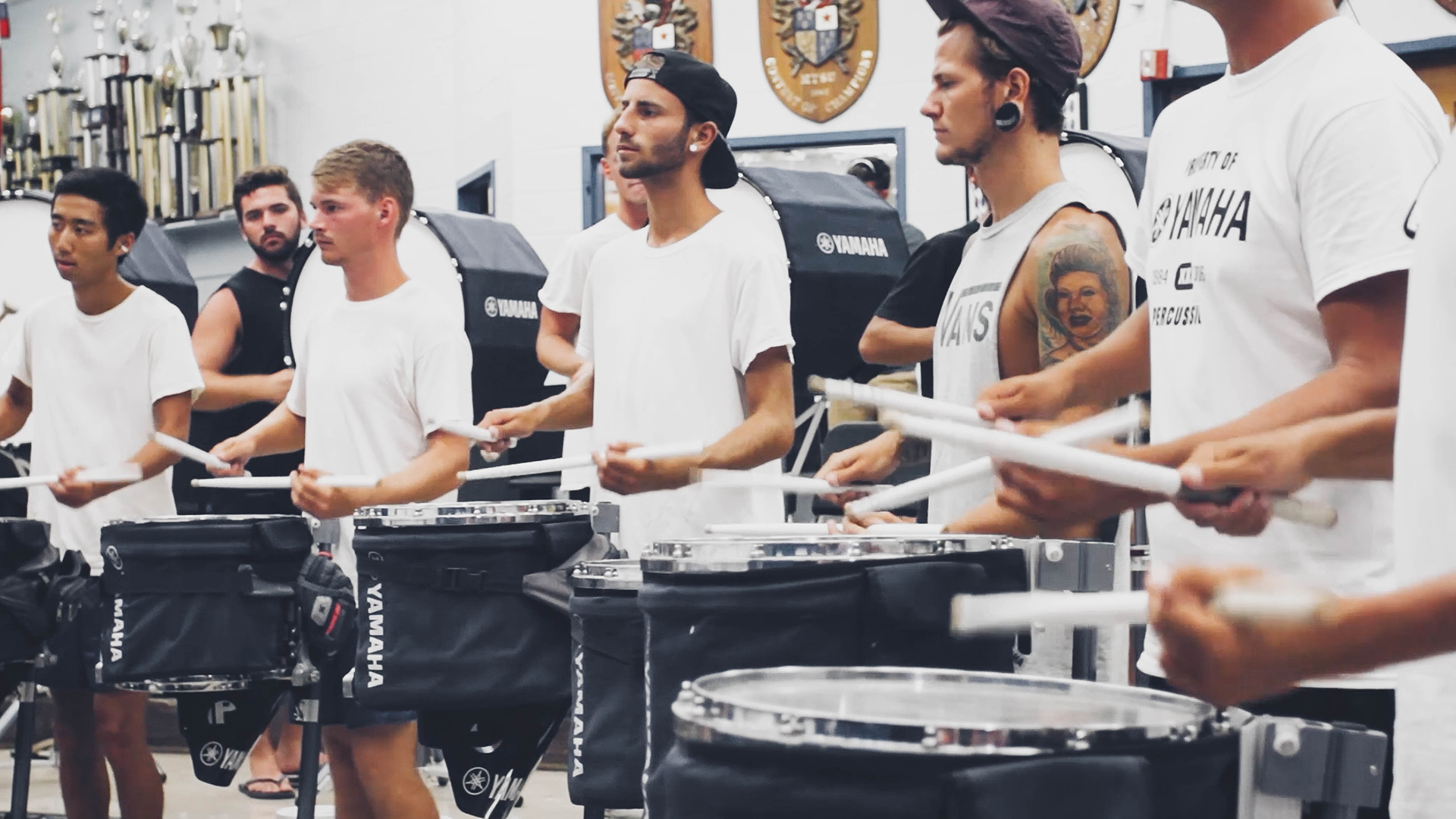
When you go to a drumline audition there are a lot of different areas of excellence the staff will be looking for. Every group is different, and this topic is complex with a ton of nuance depending on what group you're trying out for, but there are definitely some common values every drumline shares.
For anyone new to the audition scene, here are 5 simple areas of focus to consider as you prepare for your next drumline audition:
For anyone new to the audition scene, here are 5 simple areas of focus to consider as you prepare for your next drumline audition:
DRUMLINE AUDITION EXPECTATIONS
WHAT THE STAFF IS LOOKING FOR:

1. CHARACTER
GOOD PERSON - Are you a good person? Do you get along with others? You will become a representative of that drumline and they want people who embody the values and vibe of the ensemble.BODY LANGUAGE - Do you have positive, confident body language? Do you make eye contact when being spoken to? The staff wants people who look excited and eager to get better vs tired, unfocused, and scared to perform.
ALERT & ATTENTIVE - Are you paying attention? Are you living in the moment? You should look like you understand what is happening and are an active member of the rehearsal.
SENSE OF URGENCY / PURPOSE - Do you move with a purpose? Are you helpful and the first to volunteer? Do you react quickly when given a task to do? The staff wants motivated individuals who are there to move the production forward every rehearsal.
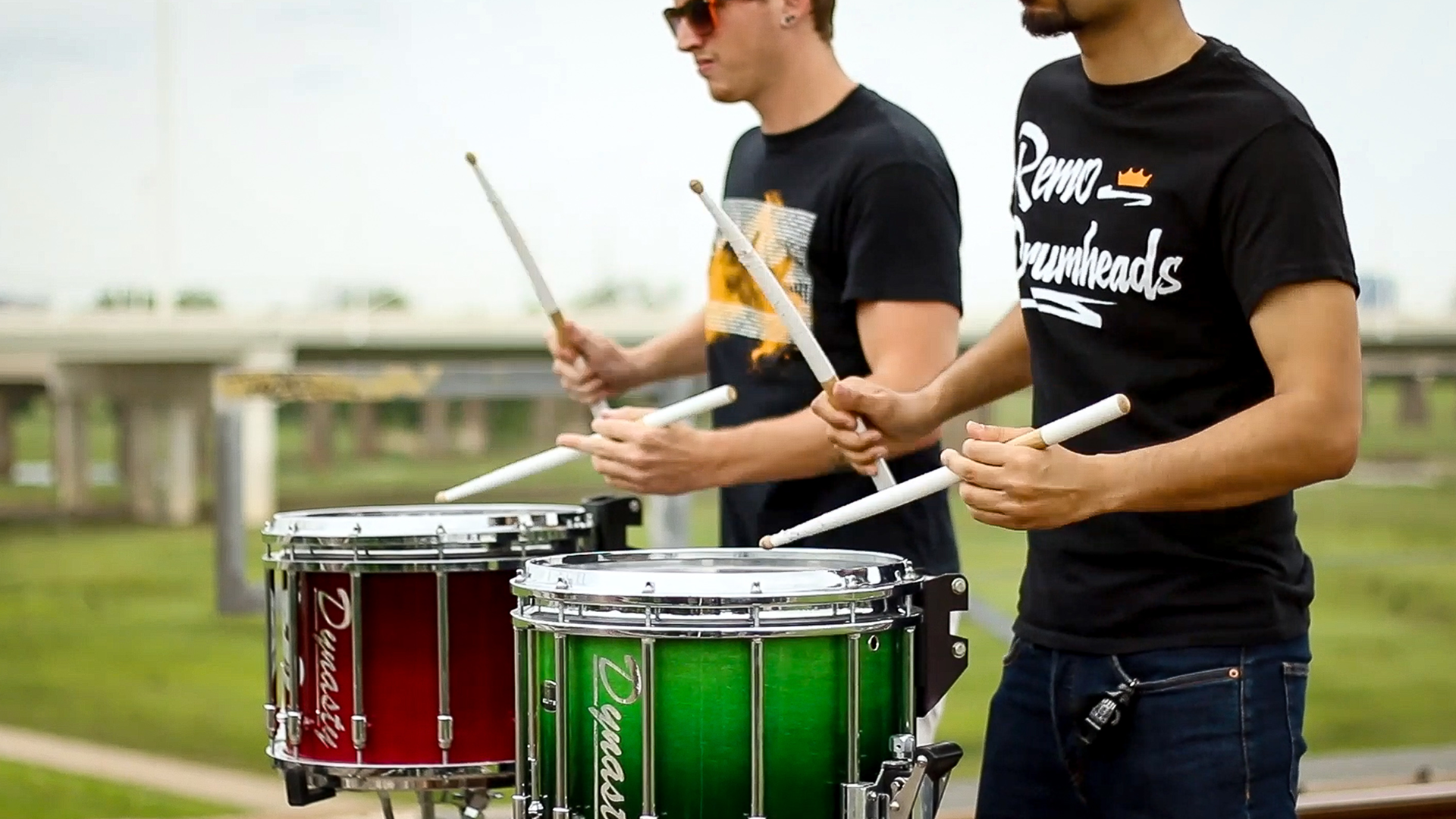
2. MUSICIANSHIP
SOUND QUALITY - Do you play with a great quality of sound? The staff is looking for people who produce a great sound from the instrument.
RHYTHMIC ACCURACY - You should be able to play with great rhythmic accuracy. The staff will be looking for people who can play clear, evenly spaced rhythms and maintain tempo while playing with the metronome, other drummers, and individually.
DYNAMIC RANGE/CONTRAST - Do you play with a wide range of dynamic contrast? You will be expected to understand how to play Pianissimo (Very Soft) to Fortissimo (Very Loud) with a great quality of sound through all dynamic levels. The staff will be listening for this as you play exercises and musical phrases.
BALANCE & BLEND - You should be able to blend your sound with the person next to you. When you play with others, the staff shouldn't be able to hear you over the other performers. Instead, they will be listening for a blended, cohesive sound. And if you do fall out or overplay, you should be able to hear that and get back into the ensemble sound quickly.
TECHNIQUE & APPROACH - Every ensemble has a philosophy they use as it relates to technique and approach to the instrument. You have to be aware of how your ensemble drums and make sure you are drumming the same way. The staff will be looking for people who use the same approach as the veterans, or are able to pick up the techniques quickly on the spot.
BONUS TIP: Before you audition, watch a variety of videos of that group performing to determine HOW they drum. Try to match your movements and sound quality to what you see. Look for interviews with staff members talking about their approach. Look at the audition packet for any approach guidelines they provide. And reach out to veterans of that group and ask them technique/approach specifics.
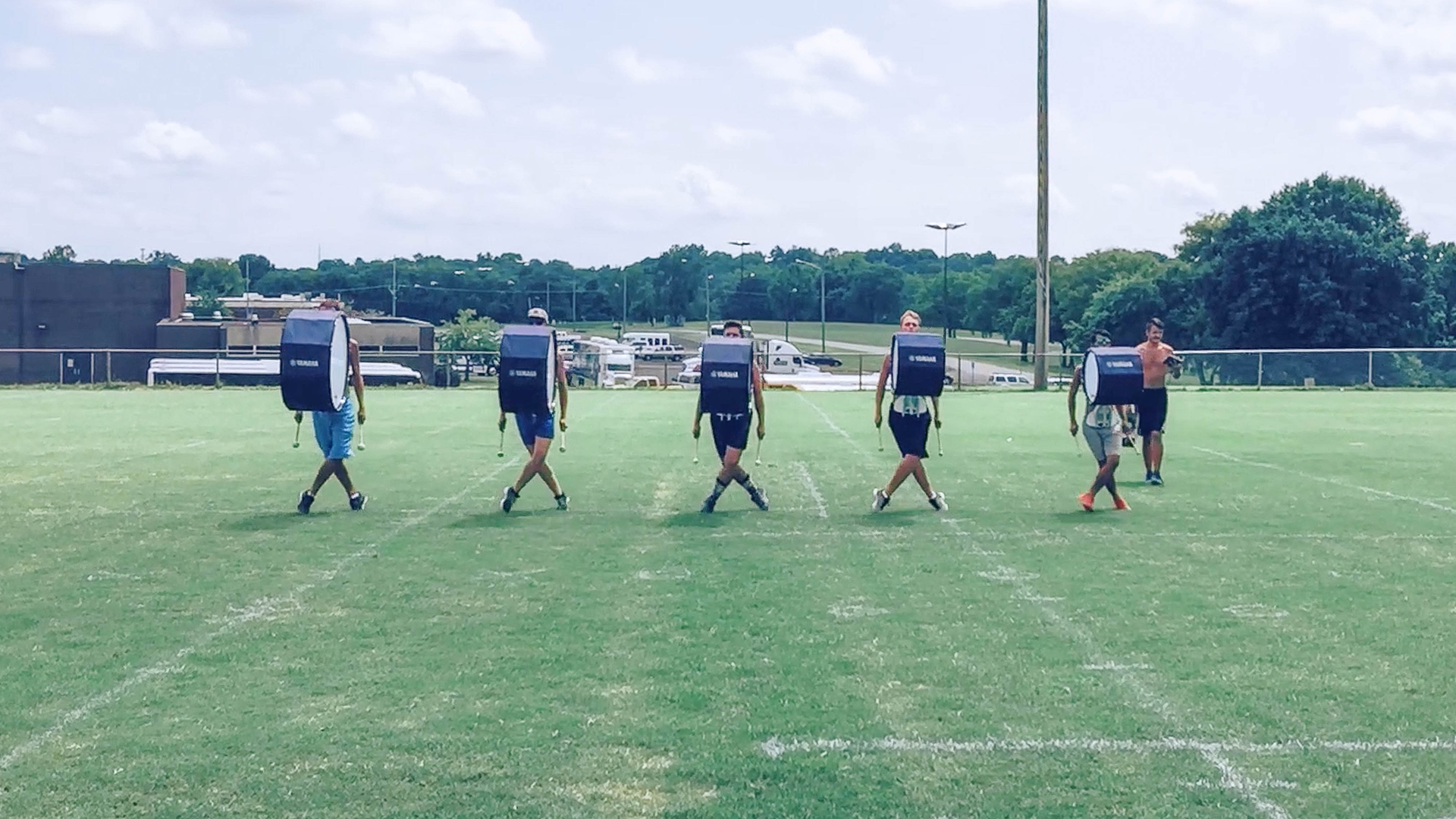
3. VISUAL EXCELLENCE
POSTURE - Do you look and feel good behind the instrument? You should be able to stand with a relaxed, confident posture. The marching arts is a very visual activity, so the staff is looking for people who look good behind the instrument. Posture is also connected to how you play, so being relaxed and knowing how to avoid tension in your muscles is very important.
FOOT TIMING - Are your feet in time? You should have the coordination to comfortably march and play at the same time at a variety of tempos. Even if you are a great musician, you can still get cut because you have inconsistent foot timing.
MARCHING TECHNIQUE / APPROACH - Same as playing technique, you should understand the technique of the ensemble you're trying out for and be familiar with that style. You should also understand fundamental marching maneuvers like Forward March, Backward March, Right Crab, Left Crab, Obliques, Circle Drill, Follow The Leader, etc.
GUIDING - You should be comfortable knowing where to guide based on the direction of movement. The staff will expect you to know how to march in forms, cover down, and maintain the spacing between you and the person next to you.
BONUS TIP: Some ensembles don't Guide at all and only use Dot Coordinates for learning/cleaning drill. If so, you should understand that process and go in with the skill to march your dots.
STEP SIZES - You should know how to march with a variety of step sizes. The staff will be looking for people who have a dynamic step size range: 16-to-5, 8-to-5, 6-to-5, 4-to-5, Etc, and can march with consistent step sizes from set to set.
BODY MOVEMENT CHOREOGRAPHY - Dance and choreography have become another popular layer of the performance package in the marching arts. Since a lot of contemporary marching ensembles have dance segments in their show, the staff will usually have some type of body movement/choreography block at auditions to see who can move well.
PERFORMANCE ENERGY / CHARACTER PORTRAYAL - Like actors on Broadway, marching arts performers act out different emotions through interpretive dance and facial expressions. If your show is about ghosts, can you act like a ghost in a way that is believable to the audience? The staff will be looking for people who can take a concept and visually demonstrate that.
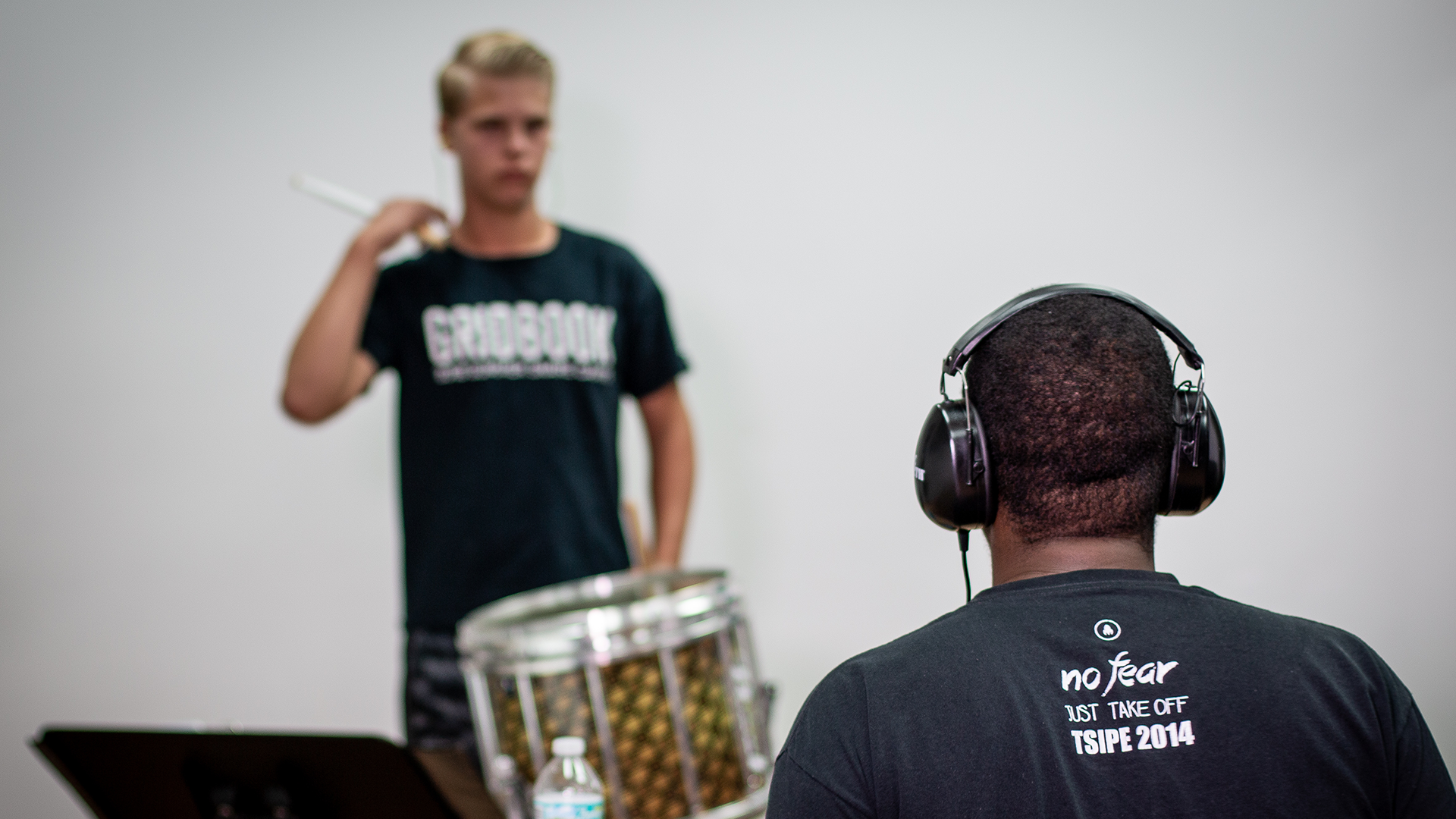
4. PREPARATION
MEMORIZATION - Do you have the entire audition packet memorized or are you still looking at the music? The staff will be looking for people who come fully prepared to play everything from the audition packet from memory.
IN THE MOMENT PLAYING - Sometimes the staff will ask you to play things that are not in the packet. How well rounded of a drummer are you? Can you play grids? Can you learn things visually without the sheet music? The staff is looking for people who have a solid foundation of fundamentals and can learn music on the fly.
CONSISTENCY - Are you a consistent performer? Are you able to perform the exact same way every time on demand? If you play great for 2 reps then start breaking every other rep, that shows that you understand the concept but have not developed any consistency with it. The staff wants people who don't break.
BONUS TIP: If you do break it's not the end of the world. But the staff will take note of how quickly you recover and get back in. The goal is to avoid breaking, but even when you do, don't let that effect you or make you emotional. Just get back in and keep going like nothing happened.
TOOLS - Make sure you come prepared with all the tools you need to succeed. An experienced performer will show up with a Drum Pad, Drum Sticks, Binder With Plastic Sheets, Pencil/Highlighter, Metronome, Water Jug, Sunscreen Athletic Clothing, Etc.
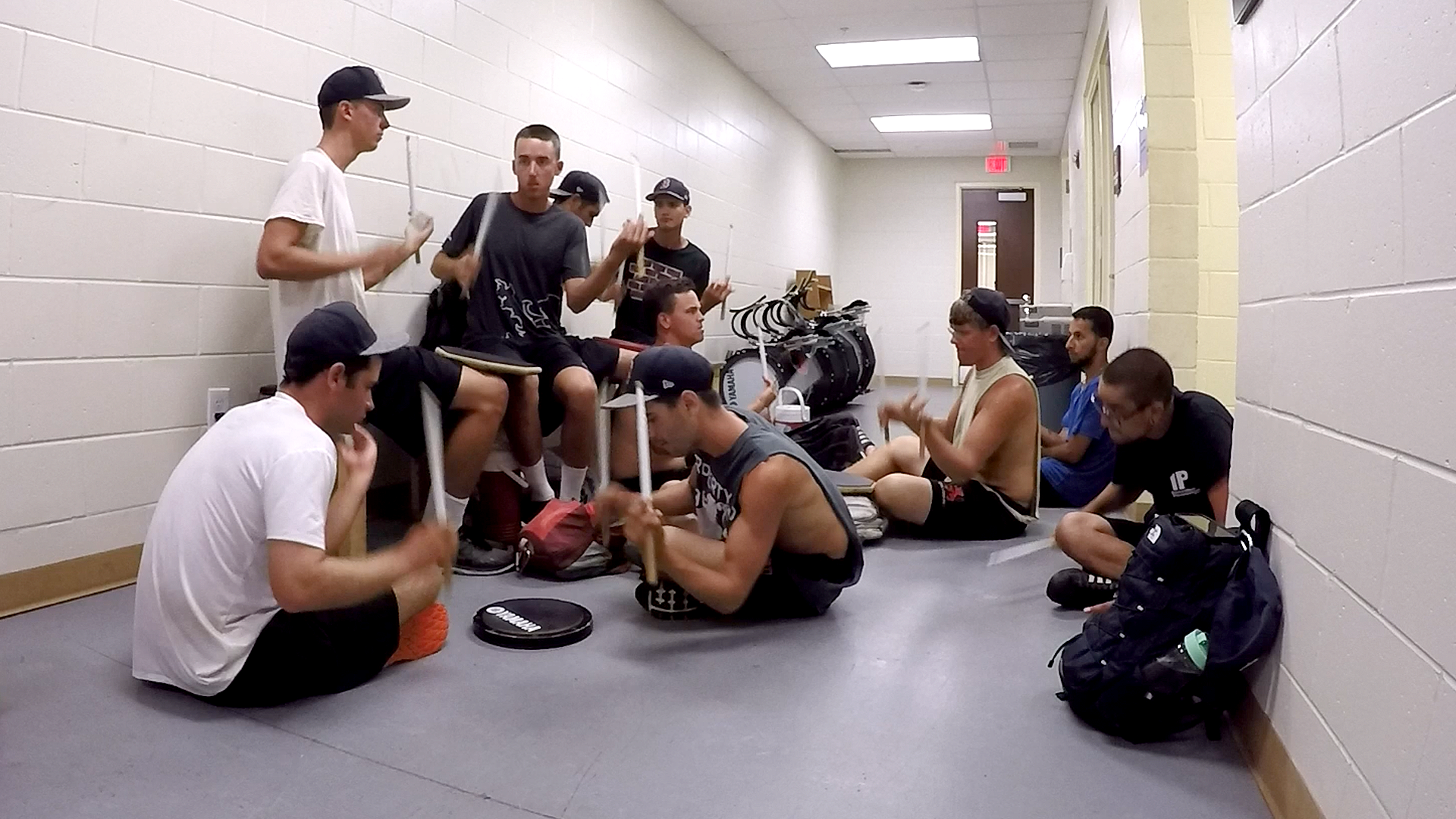
5. ADAPTABILITY
FOLLOWING INSTRUCTIONS - Do you listen well and follow instructions? The staff is looking for people who are detail oriented and do exactly that they as asked to do.
COMFORTABLE WITH FEEDBACK & CRITIQUE - Do you take critique well? Or do you get emotional when people start pointing out what you're doing wrong? The staff wants people who see critique as a positive comment to help you get better vs someone who is defensive and feels personally attacked when given feedback.
MAKE QUICK ADJUSTMENTS - When someone gives you feedback, how quickly are you making the adjustment? The staff is looking for people who can take feedback and apply it immediately in the moment vs someone who takes weeks to make an adjustment.
PERFORMANCE UNDER PRESSURE - Can you perform under pressure? Many people feel confident performing by themselves in their bedroom, but the second they are called up to drum in front of the staff and other auditionees they don't play as well. The staff is looking for people who can perform the same way in any setting regardless of the outside interference like a crowd or staff members.
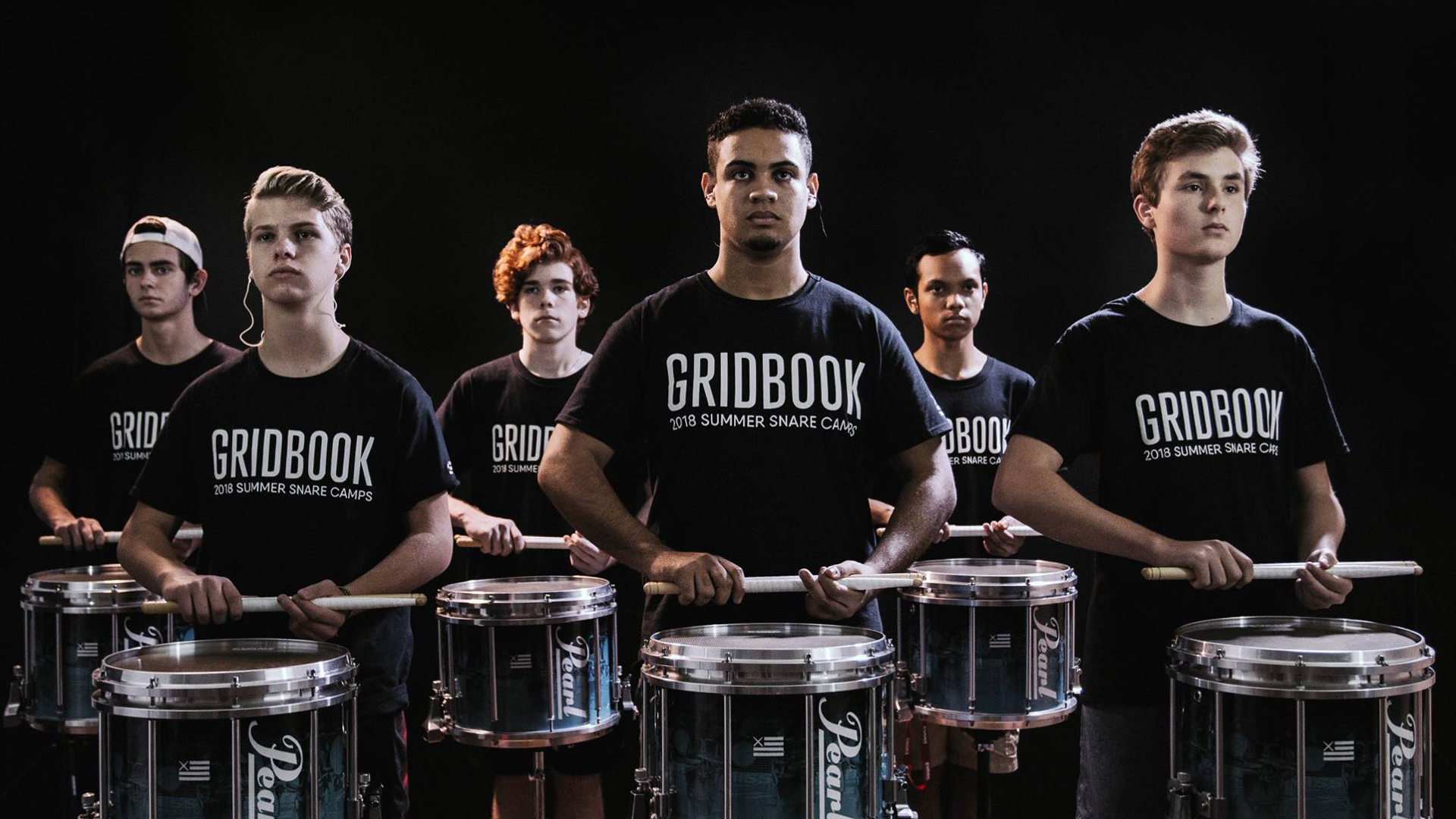
FINAL THOUGHTS
LET'S GET TO WORK.
Auditioning is a stressful event if you're not prepared. So make sure you are preparing early and being consistent in your practice time.
Many people get cut from auditions, or have to audition multiple times before making the line because they either don't know what to expect, get too nervous in the moment, or don't put in the work ahead of time to have a successful audition.
BUT, through the right process you can get better, be more prepared, and curate success faster. That is why we have created our Audition Prep Program. We took the best preparation methods we have used over the years to help hundreds of students make the line and put them in a step-by-step program to help you achieve your goals.
If you're interested in getting some help during your pre-season training, click the link below and let's make your dream happen.
Many people get cut from auditions, or have to audition multiple times before making the line because they either don't know what to expect, get too nervous in the moment, or don't put in the work ahead of time to have a successful audition.
BUT, through the right process you can get better, be more prepared, and curate success faster. That is why we have created our Audition Prep Program. We took the best preparation methods we have used over the years to help hundreds of students make the line and put them in a step-by-step program to help you achieve your goals.
If you're interested in getting some help during your pre-season training, click the link below and let's make your dream happen.

